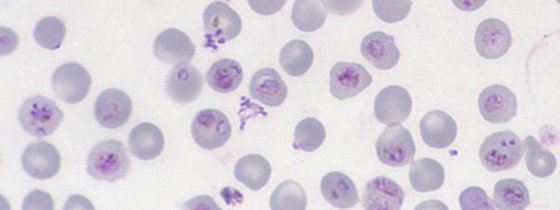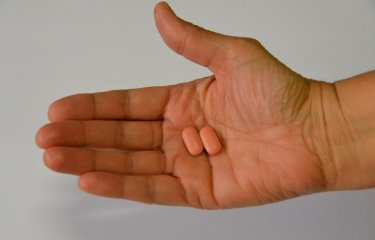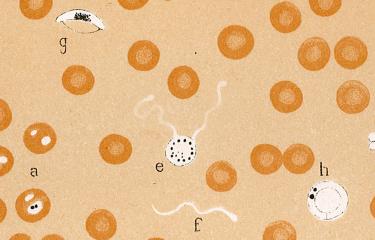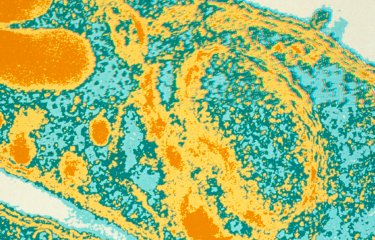Together with teams from Columbia University (USA), CNRS in Toulouse and NIH/NIAID (USA), Institut Pasteur scientists based in Paris and Cambodia have recently provided the key demonstration that K13 is indeed the main determinant of artemisinin resistance in Plasmodium falciparum parasites. This work is a landmark for the scientific community, as it provides a validated molecular marker for artemisinin resistance, which currently poses a major public health problem. This work is published in the journal Science.
Press release
Paris, December 12, 2014

Within the last decade, Western Cambodia has seen emergence and increasing prevalence of artemisinin-resistant Plasmodium falciparum parasites that cause malaria. Artemisinins are the cornerstone of all first-line antimalarial drug combinations. A major threat is that these resistant strains spread from the Mekong region to Africa, the continent with the highest malaria burden, as no therapeutic alternative is currently available.
Earlier this year, scientists at the Institut Pasteur in Paris, the Institut Pasteur in Cambodia, CNRS in Toulouse and NIH/NIAID in the USA have identified that mutations of the "K13-propeller" are associated with artemisinin resistance of Plasmodium falciparum. This major discovery, which was eagerly awaited by the scientific community, provided a powerful tool for detecting resistant forms of malaria and mapping their distribution.
In a new study published in the journal Science, these scientists in collaboration with a team from Columbia University in New York provide the definitive proof that K13 mutations confer artemisinin resistance in clinical isolates from Cambodia.
Using a highly sensitive genetic engineering technique, the scientists replaced K13 gene mutations found in Cambodian strains resistant to artemisinin with the wild-type form and observed that these strains became sensitive to the antimalarial drug. Conversely, introduction of various mutations into drug-sensitive strains conferred the ability to resist artemisinin.
This work provides formal proof that the K13 gene is the main determinant of artemisinin resistance in parasite strains in Cambodia. Their findings validate this marker and pave the way for efficient global monitoring of parasite resistance to artemisinin and the development of therapeutic strategies for fighting malaria more effectively.
Illustration: Red blood cells infected with the Plasmodium falciparum parasite (in vitro culture) © Institut Pasteur
Source
K13-Propeller Mutations Confer Artemisinin Resistance in Plasmodium falciparum Clinical Isolates, Science, 11 décembre 2014.
Judith Straimer (1), Nina F. Gnädig (1), Benoit Witkowski (2,§), Chanaki Amaratunga (3,§), Valentine Duru (2,§), Arba Pramundita Ramadani (4,5,§,^), Mélanie Dacheux (1), Nimol Khim (2), Lei Zhang (6), Stephen Lam (6), Philip D. Gregory (6), Fyodor D. Urnov (6), Odile Mercereau-Puijalon (7), Françoise Benoit-Vical (4,5,#), Rick M. Fairhurst (3,#), Didier Ménard (2,#), David A. Fidock (1,8)
(1) Department of Microbiology & Immunology, Columbia University College of Physicians and Surgeons, New York, New York, USA.
(2) Malaria Molecular Epidemiology Unit, Institut Pasteur in Cambodia, Phnom Penh, Cambodia.
(3) Laboratory of Malaria and Vector Research, National Institute of Allergy and Infectious Diseases, National Institutes of Health, Bethesda, Maryland, USA.
(4) French National Center for Scientific Research (CNRS), Coordination Chemistry Laboratory UPR8241, Toulouse, France.
(5) University of Toulouse, Paul Sabatier University, Institut National Polytechnique de Toulouse, Toulouse, France.
(6) Sangamo BioSciences, Inc., Richmond, California, USA.
(7) Institut Pasteur, Parasite Molecular Immunology Unit, Paris, France.
(8) Division of Infectious Diseases, Department of Medicine, Columbia University College of Physicians and Surgeons, New York, New York, USA.
§,# These authors contributed equally to the work.
^Current address: Department of Pharmacology and Therapy, Faculty of Medicine, Gadjah Mada University, Yogyakarta, Indonesia.





